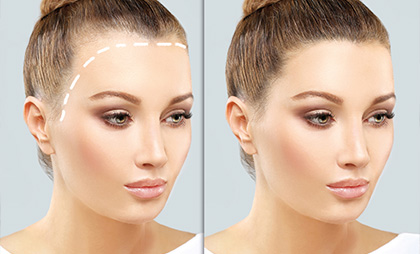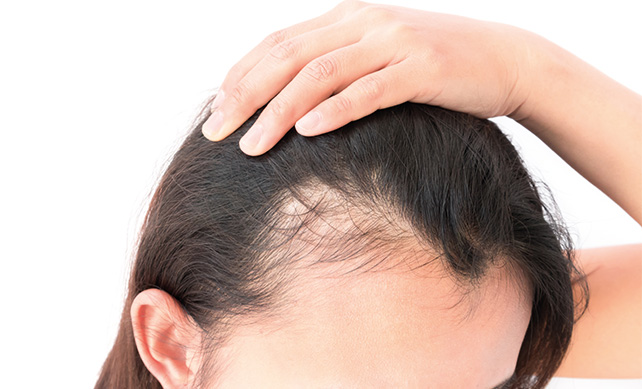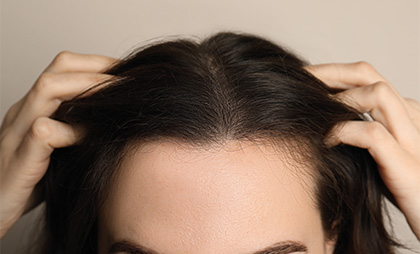What Is Hair Transplantation For Women
While hair transplantation is more commonly associated with men, it’s also a prevalent practice among women, who often face hair loss conditions that can lead to psychological distress. Thankfully, various cosmetic procedures offer solutions for women experiencing hair loss or thinning. These treatments include serums, lotions, and hair laser therapies designed to stimulate hair growth. However, in cases where these methods prove ineffective due to the type or cause of hair loss, hair transplantation becomes a viable option. At Benew, we utilize advanced and approved techniques specifically tailored for women’s hair transplantation, performed by expert professionals.



Why Would Women Face Hair Loss
Female pattern hair loss can be caused by a variety of factors, which differ from person to person due to the unique interplay of genetic and environmental influences. These factors include:
- Hormonal fluctuations, particularly during pregnancy, postpartum, and menopause.
- Stress-induced hair loss.
- Certain medications or treatments that can lead to thinning or balding.
- Excessive blood loss during menstruation.
- Family history of female or male pattern baldness.
- Aging.
- Genetic predisposition.
Hair Transplant Techniques For Women
Hair transplantation procedures for women differ from those for men. While men have a range of techniques to choose from, women typically undergo a single technique tailored to their needs. This technique, known as direct hair transplantation or DHI, is preferred for its ability to provide adequate hair density without requiring a full head shave. Utilizing the Choi pen technique, DHI involves shaving only the donor area while maintaining the rest of the hair. This advanced method allows for simultaneous channel opening and graft implantation, resulting in high-density coverage in the treated area. Therefore, DHI is considered the most suitable and effective option for hair transplantation in women.
Hair transplant candidates include individuals experiencing significant hair thinning, severe hair loss, or hereditary baldness. They should possess a robust and ample donor area and maintain good overall health. Additionally, they should not have skin conditions like eczema or alopecia that could impede the transplantation process. It’s crucial that they don’t have active hormonal issues, as addressing these is essential before considering transplantation. Ideal candidates typically fall within the age range of 25 to 60 years for hair transplantation.
Pre-Procedure Tips For Hair Transplantation For Women
Before undergoing a hair transplant, it’s crucial to consider several key factors to minimize potential side effects. These include:
-
Refraining from smoking for at least two weeks prior to the procedure, as smoking can negatively impact the growth of transplanted hair follicles and compromise treatment outcomes.
-
Avoiding consumption of green tea, as it can thin the blood and lead to excessive bleeding before and after surgery, ultimately increasing the risk of transplant failure.
-
Steer clear of coffee and other stimulants for at least four days before the transplant, as they can interfere with the effectiveness of anesthesia.
-
Ensuring you have a nutritious and balanced meal before the procedure to promote optimal health and prevent any complications that may arise during or after surgery.
-
Discontinuing the use of blood-thinning medications such as aspirin and ibuprofen.
-
Informing your doctor about any medications you are currently taking to ensure a comprehensive understanding of your medical history and potential interactions with the procedure.



Stages Of Hair Transplant For Women
Examine both the donor and recipient areas medically. Calculate the number of follicles required for implantation. Identify the areas for transplantation and sketch the new hairline. Shave and sterilize only the donor area, then locally anesthetize and prepare it for extraction. Apply local anesthesia to the recipient areas and ready them for graft implantation. Perform the hair transplantation procedure utilizing Choi pens and DHI technology.
Post-Procedure Tips For Hair Transplantation For Women
Aftercare is crucial to the success of hair transplantation. Therefore, it is highly recommended to understand what is required from you.
- Wear a head bandage for two days.
- Refrain from bending, and ensure to keep your head straight.
- Wait to wash your hair for three days. Our experts at the clinic will do the first wash.
- Make sure to sleep in the correct position as advised by the surgeon.
- Avoid sweating by avoiding exposure to heat and humidity, exercising for at least one month & sexual intercourse for at least one week.
- Avoid swimming in pools for two months and the sea for at least three months.
- Refrain from going to the Turkish bath or sauna for at least one month.
- If any side effect is experienced, such as bleeding, immediately contact the doctor.
- Strictly follow any instructions explicitly prescribed to your case by the surgeon to ensure the desired results.



